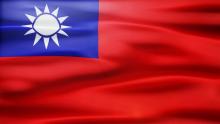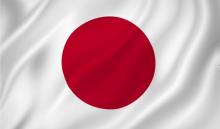Unwelcoming Nation: China's hostage diplomacy
Following the last update to our coverage of China, Unwelcoming Nation in October 2020, we now have news that Australian journalist and anchor for China’s state-party run media CGTN Cheng Lei has been formally charged with "illegally supplying state secrets overseas", the same crime that Swedish publisher Gui Minhai was sentenced to 10 years in jail for in early 2020. Lei was placed into Residential Surveillance at a Designated Location (RSDL), a type of black jail, last August following worsening relations between Beijing and Canberra.
A new country joins the fold of targets for China's hostage diplomacy. Only recently widely reported, China has illegally prevented Irish businessman Richard O’Halloran from leaving for two years over accusations of fraud not against him, but the Chinese owner of an Ireland-based aircraft leasing company he works for. The stress of the exit ban -- O'Halloran is a father of four -- and the interrogations -- have led to two hospitalisations for serious medical issues.
China's hostage diplomacy by country
In recent years, citizens of at least 12 countries or regions—the US, Taiwan, Australia, Canada, Japan, Turkey, Kazakhstan, Ireland, Sweden, UK, Hong Kong and Belize—have been disappeared in China in what appears to be arbitrary detentions, many accused of national security crimes, others caught up in the vast network of concentration camps in Xinjiang. And these are just the high-profile ones that media report.
The most blatant case happened in December 2018, after Canada infuriated China by detaining Huawei CFO Meng Wanzhou following an extradition request from the United States. Within days, China retaliated by disappearing two Canadian citizens, former diplomat Michael Kovrig and businessman Michael Spavor, into RSDL. In June 2020 they were formally charged with espionage.
Australia

Australian consular officials had a meeting with Cheng Lei (see above) on 27 January this year. Her move from RSDL to formal detention at least means that presumably she is no longer in solitary confinement and has, at least in law, the right to access a lawyer. Australian officials say that they do not expect the case to move quickly though and Lei may languish in a detention centre for months if not years to come.
In January 2019, Australian writer Yang Hengjun disappeared in China. It later emerged he had been placed in RSDL and then later arrested on spying charges. New details have emerged that he has been prevented from seeing his lawyers and is shackled by his hands and feet for interrogations. In October 2020, he was formally charged with espionage. Yang, who holds an Australian passport was a former Chinese diplomat and enraged Beijing with his pro-democracy writings. Since his detention, his wife, Yuan Xiaoliang, a Chinese national with permanent Australian residency, has been barred from leaving China,
Last year, in early September, the last two Australian journalists reporting from China fled the country after they were warned by the embassy to leave and Beijing threatened them with exit bans unless they agreed to be questioned about a national security case. Bill Birtles, the ABC’s Beijing correspondent and Mike Smith, who worked for Australian Financial Review in Shanghai, hid out in Australia’s embassy and its Shanghai consulate before they were allowed to leave for Sydney. Their interrogations with Ministry of State Security officials concerned the detained journalist Cheng Lei, but for both the questions were mundane.
It is possible this was in part a tit-for-tat response to June raids of Chinese journalists’ homes in Australia by intelligence officials and police. That investigation concerned an alleged plot to influence an Australian politician by Chinese agents.
Matthew Carney, the former ABC bureau chief in China then went public with how China threatened him and his 14-year-old daughter with detention in 2018, eventually forcing him to flee with his family. He said the treatment was in response to his coverage of China’s re-education camps in Xinjiang and other stories China did not like and a foreign interference law aimed at China that was being introduced in Australia.
Before Carney and his family were allowed to leave China, him and his daughter were forced to record confessions on camera that they had committed visa fraud.
China has been furious with Australia since 2017 for shelving an extradition treaty with Beijing. In 2018, it passed anti-foreign intervention law (widely seen as a response to Beijing’s worrying interference in Australian political affairs); banned Huawei from the country’s 5G infrastructure; and made efforts to counter Chinese expansion into the Pacific.
Australian employees of mining giant Rio Tinto and Casino operator in Crown Resorts in China have also been arrested in cases that were at least partially wrapped up in political motivations.
Ireland
 Ireland is the latest country to join the list of victims of China's hostage diplomacy. Richard O’Halloran has been denied the right to leave for almost two years, despite the fact he is not suspected of any crime and has cooperated with police in giving evidence in the case against Min Jiedong, the owner of China International Aviation Leasing Service who has been jailed for fraud in China. It is not clear why he is still not allowed to leave even though the case against Min has been concluded. Legal scholar Jerome Cohen calls the treatment of O'Halloran "pure Cultural Revolution stuff," and possibly the result of "powerful local influencers being given deference by central officials." In such cases, the local Chinese courts are helpless, he says.
Ireland is the latest country to join the list of victims of China's hostage diplomacy. Richard O’Halloran has been denied the right to leave for almost two years, despite the fact he is not suspected of any crime and has cooperated with police in giving evidence in the case against Min Jiedong, the owner of China International Aviation Leasing Service who has been jailed for fraud in China. It is not clear why he is still not allowed to leave even though the case against Min has been concluded. Legal scholar Jerome Cohen calls the treatment of O'Halloran "pure Cultural Revolution stuff," and possibly the result of "powerful local influencers being given deference by central officials." In such cases, the local Chinese courts are helpless, he says.
Taiwan
 Last year, four Taiwanese citizens who had gone missing in China from a year to two years ago, were paraded on China’s Party-State TV confessing to various crimes related to national security. Over three days, the four men Lee Meng-chu, Cheng Yu-chin, Tsai Chin-shu, and Shih Cheng-ping were shown, some with shaved heads, and wearing prison vests looking contrite, and apologizing to their “motherland”. The programme featuring Cheng Yu-chin was full of inaccuracies – claims such as he worked for Taiwan’s Ministry of Foreign Affairs, was a faculty member of Charles University in the Cech Republic, and an aide for the former chair of the DPP (the ruling party), all appear to be false. Is this sloppy journalism or brazen indiffierence on the part of China's party-state "media"?
Last year, four Taiwanese citizens who had gone missing in China from a year to two years ago, were paraded on China’s Party-State TV confessing to various crimes related to national security. Over three days, the four men Lee Meng-chu, Cheng Yu-chin, Tsai Chin-shu, and Shih Cheng-ping were shown, some with shaved heads, and wearing prison vests looking contrite, and apologizing to their “motherland”. The programme featuring Cheng Yu-chin was full of inaccuracies – claims such as he worked for Taiwan’s Ministry of Foreign Affairs, was a faculty member of Charles University in the Cech Republic, and an aide for the former chair of the DPP (the ruling party), all appear to be false. Is this sloppy journalism or brazen indiffierence on the part of China's party-state "media"?
The timing of these forced confessions is no accident – the first one was aired just a day after Taiwan’s national day celebrations and as tensions between the two countries have been especially tense.
In 2017, China disappeared and convicted Taiwanese human rights defender Lee Ming-che, sentencing him to five years for state subversion.
Some 67 Taiwanese have gone missing in China since 2016 (when the independence-leaning DPP party took power). With Tsai Chin-shu detained and kept incommunicado for over a year before China admitted to having taken, it begs the question of how many of those missing 67 have also been detained, and how many of those on political grounds.
Further, in 2019 Spain extradited 260 Taiwanese citizens to mainland China; several of whom have gone missing since. Their lawyers in Spain and families in Taiwan have been unable to reach them or been informed by the Chinese authorities what has happened to them.
Interestingly, in these politically-motivated cases, Taiwanese citizens are usually charged with endangering state security, while non-Taiwanese foreigners are accused of spying.
Canada

The most blatant case of hostage diplomacy in recent years happened in December 2018, when Canada infuriated China by detaining Huawei CFO Meng Wanzhou following an extradition request from the United States. Within days, China retaliated by disappearing two Canadian citizens, former diplomat Michael Kovrig and businessman Michael Spavor, into RSDL; a move widely seen as a form of hostage diplomacy.
With Meng’s case still pending depsite intense pressure from Beijing, the two Michaels continue to be mistreated. They were formally indicted in June 2020 on national security charges. Their consular access has been severely curtailed to the extent that for months Kovrig did not even know that there was a coronavirus pandemic.
At the end of last year Richard Lee, a Chinese-Canadian politician, went public with the news that he was detained for eight hours at Shanghai Airport back in 2015, his government phone was searched and he was accused of “endangering national security” before he was deported. He said he didn’t speak about it before because he didn’t want to jeopardize Canadian-China relations, but since then Beijing’s interference in Canada has escalated.
It didn’t stop there. In apparent anger at Canada’s continued refusal to release Meng, Beijing upped the jail sentence of Robert Schellenberg, a Canadian originally serving 15 years for drug smuggling to the death penalty, in a move widely seen as political, and in a procedure that, according to lawyers in China, was unprecedented. A few months later, China sentenced another Canadian Fan Wei to death for manufacturing meth, also seen as an outlier harsh judgement.
Canada has more experience than other countries with CCP hostage diplomacy. Back in 2014, Canadian couple Julia and Kevin Garratt were both disappeared into RSDL. Like the two Michaels, neither had access to a lawyer, and were kept at secret locations. Their detention was linked to Canada’s detention of a Chinese national: Su Bin, a Chinese aviation entrepreneur, who the US accused of being a spy. He was later sentenced to four years in jail in the US in 2016 for stealing military secrets.
Two brothers, Chen Zhiheng and Chen Zhiyu, naturalized Canadian citizens, were detained in April 2018 and forced to confess on Chinese state broadcaster CCTV to conspiring with exiled Chinese billionaire Guo Wengui. Guo is one of China's most wanted men and Beijing has long been trying to force him to go back to Chna. Recently leaked documents concerning China's policy of mass incarceration in Xinjiang, targetting Uighyr people, also revelead that yet another Canadian, Huseyin Celil, was detained back in 2005, in Uzbekistan, and taken back to China, and incarcerated ever since. Canada has been denied the right to visit their citizen in prison.
United States
 In August 2019, a massage therapist who lives in Arizona was taken away by Chinese police just after her plane landed in Shanghai. Friends and family are still trying to understand why Sue Jiang was arrested and accused of "provocation." Some speculate that she is fallout from the souring relationship between the US and China.
In August 2019, a massage therapist who lives in Arizona was taken away by Chinese police just after her plane landed in Shanghai. Friends and family are still trying to understand why Sue Jiang was arrested and accused of "provocation." Some speculate that she is fallout from the souring relationship between the US and China.
Americans Jacob Harlan and Alyssa Petersen were arrested at the end of September 2019 in Jiangsu province on charges of illegally moving people across borders. They had been running a business that brought foreigners to China to teach English for many years. Their arrest came just two weeks after the US arrested Chinese government official Zhongsan Liu on suspected visa fraud. The two were released on bail, but their families say that they were detained again at the end of December 2019.
In June 2018, US citizens, brother and sister Victor and Cynthia Liu were banned from leaving China, while their mother Sandra Han, also a US citizen was detained, an apparent attempt to force their estranged father Liu Changming to go back to China to face fraud charges.
US citizen, Huang Wan, daughter-in-law to fallen security tsar Zhou Yongkang was disappeared into RSDL for 10 months in 2013. In June 2019, she was allowed to leave China, but like the Lius she has been prevented from leaving. In 2015, another American, Sandy Phan-Gillis, was disappeared and held at a secret location for half a year.
John Cao, a pastor who had been working with schools in China and Myanmar, was sentenced to seven years in prison in March 2018 for "organizing others to illegally cross the border" after helping Chinese teachers to cross into Myanmar to hold classes with the knowledge and sometimes help of the authorities, according to his son. The U.N. Working Group on Arbitrary Detention has deemed his an arbitrary detention according to the Congressional-Executive Commission on China.
Businessman Kai Li was held in RSDL in September 2016 when he returned to Shanghai to mark one year since his mother's death. In July 2018, he was sentenced to 10 years after a secret trial a year earlier on state security charges. US diplomats were not allowed to attend his trial. His son says his father's health is suffering in jail.
One of the earliest cases involved a US geologist Xue Feng. In 2007, he was disappeared in China for several years, tortured and then imprisoned for stealing secrets. He was finally released in 2015 and allowed to return home to the US. In 2006, another pastor, David Lin was given a life sentence on charges of contract fraud. He had come to China to build a church. His sentence was recently reduced and he is expected to be released in 2030.
Japan
 Yuan Keqin, a permanent resident of Japan but born in China, and a professor at Hokkaido University of Education went missing last summer in China when he went to attend a family funeral. Finally in March, Beijing admitted it had detained him on suspicion of spying.
Yuan Keqin, a permanent resident of Japan but born in China, and a professor at Hokkaido University of Education went missing last summer in China when he went to attend a family funeral. Finally in March, Beijing admitted it had detained him on suspicion of spying.
In September 2019, Ministry of State Security arrested Japanese professor of history, Nobu Iwatani, who had been invited to China by the Chinese Academy of Sciences. He was released two months later after he had been forced to sign a confession that he had been collecting state secrets and following international pressure. Iwatani had previously worked for Japan's Foreign Ministry and the Defense Ministry’s National Institute for Defense Studies.
Japan’s tense relationship with China, reflecting their enduring geopolitical rivalry and territorial disputes can be seen in the number of its citizens arrested on the mainland. There are few details in the English-language press but some media have reported that nine Japanese citizens have been jailed or detained on spying charges since 2015. It is believed the number is far higher, but the Japanese government's silence on the matter, and the little exposure Japanese disappearances garner in media makes it difficult to have a fuller picture.
Belize
 At the end of November 2019, China said it had arrested a Belizean called Lee Henley Hu Xiang in Guangzhou for "funding criminal activities that harmed national security." He is accused of providing funding for anti-China organisations in the US and for working with foreign forces to "meddle with Hong Kong affairs."
At the end of November 2019, China said it had arrested a Belizean called Lee Henley Hu Xiang in Guangzhou for "funding criminal activities that harmed national security." He is accused of providing funding for anti-China organisations in the US and for working with foreign forces to "meddle with Hong Kong affairs."
Belize has diplomatic relations with Taiwan.
Others
Ethnic Uighurs who are citizens of other countries have been caught up in China's network of concentration camps in Xinjiang. So far it seems there is only confirmation of Uighurs from Turkey and Kazakhstan that have been locked up without due process since 2017. In March this year, Buzzfeed reported that at least six Turkish nationals, including two children have disappeared inside China.
Several ethnic Kazakhs have gone missing in Xinjiang also, a few have been allowed to return where some have been able to go public with details on the concentration camps including Omir Bekali and Gulbahar Jalilova.
In August 2019, Simon Cheng a Hong Kong citizen and a former employee of the UK consulate in the territory went missing in China. It took almost two weeks for China to admit it had detained him. He was later released after serving 15 days Administrative Detention on what many say were dubious prostitution charges. Simon went public with his disappearance in November, describing how he was shackled, hooded, blindfolded and tortured. He was also forced to record several videoed confessions, one of which was released by China a few days after he talked to the press.
In 2015, Hong Kong resident (but UK passport holder) Lee Bo, was kidnapped by Chinese secret police in Hong Kong and disappeared into China. Lee disappeared along with four others who were involved with a publishing house that produced gossipy and politically sensitive books about China's top leaders.
One of the others, Swedish citizen Gui Minhai, was kidnapped from Thailand before being brought back to China in 2015. Gui was sentenced to 10 years in prison for "illegally providing intelligence overseas" on 25 February 2020.